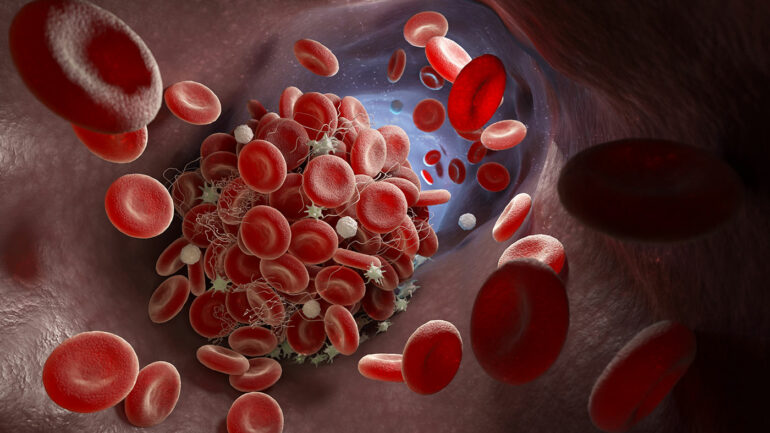Introduction to Vitamin K
Vitamin K is a fat-soluble vitamin that plays a crucial role in several bodily functions, most notably in the process of blood clotting. Despite its importance, it often doesn’t receive the attention it deserves. This guide delves into the various aspects of Vitamin K, its benefits, sources, and why it’s essential for your health.
What is Vitamin K?
Vitamin K is a group of structurally similar, fat-soluble vitamins that the body requires for the synthesis of proteins involved in blood clotting and bone metabolism. The two main forms of Vitamin K are Vitamin K1 (phylloquinone) and Vitamin K2 (menaquinone).
Vitamin K1 (Phylloquinone)
Vitamin K1 is primarily found in green leafy vegetables and is the major form of Vitamin K in the diet. It plays a critical role in blood clotting.
Vitamin K2 (Menaquinone)
Vitamin K2 is found in animal products and fermented foods. It is essential for bone and cardiovascular health. K2 can be further divided into several subtypes, the most important being MK-4 and MK-7.
The Role of Vitamin K in Blood Clotting
Vitamin K is indispensable for the synthesis of certain proteins that mediate blood clotting. Without Vitamin K, the body cannot produce prothrombin, a protein and clotting factor that is important in blood clotting and bone metabolism.
How Vitamin K Works
Vitamin K acts as a coenzyme for the enzyme gamma-glutamyl carboxylase, which modifies certain proteins to give them the ability to bind calcium ions. This is crucial in the blood clotting cascade, where it helps convert prothrombin to thrombin, an enzyme that causes blood to clot.
Importance in Preventing Excessive Bleeding
Adequate levels of Vitamin K are vital for preventing excessive bleeding and ensuring that wounds heal properly. People with Vitamin K deficiency may experience symptoms such as easy bruising, bleeding gums, and excessive bleeding from wounds or injections.
Health Benefits Beyond Blood Clotting
While Vitamin K is best known for its role in blood clotting, it also offers other significant health benefits.
Bone Health
Vitamin K2, in particular, is essential for bone health. It helps in the regulation of calcium in the bones and arteries. Vitamin K2 activates osteocalcin, a protein that binds calcium to bones, thus improving bone density and reducing the risk of fractures.
Cardiovascular Health
Vitamin K2 also helps prevent the calcification of arteries and other soft tissues. This reduces the risk of arterial stiffness and promotes cardiovascular health. By regulating calcium deposition, Vitamin K2 ensures that calcium is deposited in the bones rather than in the arteries.
Anti-Inflammatory and Antioxidant Properties
Vitamin K has been shown to have anti-inflammatory and antioxidant properties. It helps in reducing the levels of inflammatory markers in the body and protects cells from oxidative damage.
Sources of Vitamin K
Obtaining enough Vitamin K from your diet is essential for maintaining its levels in the body. Here are some of the best dietary sources:
Vitamin K1 Sources
- Green Leafy Vegetables: Spinach, kale, collard greens, and Swiss chard are excellent sources.
- Cruciferous Vegetables: Broccoli, Brussels sprouts, and cabbage.
- Herbs: Parsley and basil.
- Vegetable Oils: Soybean and canola oil.
Vitamin K2 Sources
- Animal Products: Liver, meat, and dairy products.
- Fermented Foods: Natto (fermented soybeans), sauerkraut, and certain cheeses.
- Egg Yolks: A good source of MK-4.
Vitamin K Deficiency
Although Vitamin K deficiency is rare in healthy adults, it can occur in certain populations and lead to serious health issues.
Causes of Vitamin K Deficiency
- Poor Dietary Intake: Not consuming enough Vitamin K-rich foods.
- Malabsorption Disorders: Conditions like celiac disease, Crohn’s disease, and cystic fibrosis can impair the absorption of Vitamin K.
- Liver Disease: The liver is essential for the storage and metabolism of Vitamin K.
- Medications: Some drugs, like antibiotics and anticoagulants, can interfere with Vitamin K absorption or function.
Symptoms of Vitamin K Deficiency
- Easy Bruising: Unexplained bruises on the body.
- Bleeding: Excessive bleeding from wounds, surgical sites, or puncture sites.
- Blood in Urine or Stool: Indicating internal bleeding.
- Heavy Menstrual Periods: For women.
Recommended Daily Intake of Vitamin K
The recommended daily intake of Vitamin K varies based on age, sex, and life stage.
General Guidelines
- Adult Men: 120 micrograms per day.
- Adult Women: 90 micrograms per day.
- Pregnant or Breastfeeding Women: Should aim for the same intake as non-pregnant women.
Supplementing with Vitamin K
While most people can get enough Vitamin K through their diet, some may need supplements to meet their needs, especially those with certain health conditions or dietary restrictions.
Choosing a Vitamin K Supplement
- Forms Available: Vitamin K1 and various forms of Vitamin K2 (MK-4 and MK-7).
- Combination Supplements: Often combined with other vitamins like Vitamin D to enhance benefits.
- Dosage: Follow the recommended dosage on the supplement packaging or consult a healthcare provider.
Potential Interactions and Side Effects
- Anticoagulants: People on blood thinners like warfarin should monitor their Vitamin K intake to avoid interactions.
- Allergic Reactions: Although rare, some people might experience allergic reactions to Vitamin K supplements.
Vitamin K in Special Populations
Certain groups may have specific needs or considerations when it comes to Vitamin K intake.
Infants
Newborns are at risk of Vitamin K deficiency because they have low stores at birth and their gut microbiota is not yet fully developed to synthesize Vitamin K. To prevent bleeding disorders, it is standard practice to give a Vitamin K injection at birth.
Elderly
Older adults are at a higher risk of Vitamin K deficiency due to factors like decreased dietary intake, malabsorption issues, and the use of multiple medications. Ensuring adequate intake can help maintain bone and cardiovascular health.
People with Chronic Conditions
Individuals with conditions affecting fat absorption, such as Crohn’s disease or cystic fibrosis, need to monitor their Vitamin K levels closely and might require supplements.
Cooking and Storage Tips for Vitamin K
To maximize the Vitamin K content in your food, consider the following tips:
Cooking Tips
- Minimal Boiling: Boiling vegetables can cause significant loss of Vitamin K. Steaming or microwaving helps retain more nutrients.
- Use Oils: Since Vitamin K is fat-soluble, cooking with a small amount of oil can enhance absorption.
- Fresh is Best: Fresh, raw vegetables have higher Vitamin K content compared to cooked or processed ones.
Storage Tips
- Refrigerate Greens: Keep leafy greens in the refrigerator to preserve their Vitamin K content.
- Avoid Prolonged Storage: Use vegetables soon after purchase to prevent nutrient degradation.
The Future of Vitamin K Research
Research on Vitamin K continues to evolve, uncovering new benefits and applications for this vital nutrient.
Emerging Health Benefits
Studies are exploring potential roles of Vitamin K in cancer prevention, cognitive health, and joint health. The anti-inflammatory properties of Vitamin K are also being investigated for their potential in treating inflammatory diseases.
New Forms and Delivery Methods
Innovations in supplement formulations and delivery methods, such as nano-encapsulation, are making Vitamin K supplements more effective and easier to absorb.
Conclusion
Vitamin K may not be as well-known as some other vitamins, but its impact on health is profound. From ensuring proper blood clotting to supporting bone and cardiovascular health, Vitamin K is truly an unsung hero. By including a variety of Vitamin K-rich foods in your diet and considering supplements when necessary, you can harness the full benefits of this essential nutrient.
Frequently Asked Questions
What are the signs of Vitamin K deficiency?
Signs of Vitamin K deficiency include easy bruising, excessive bleeding from wounds or surgical sites, bleeding gums, and blood in urine or stool. In severe cases, it can lead to internal bleeding.
Can you get enough Vitamin K from diet alone?
Yes, most people can get enough Vitamin K from their diet by consuming green leafy vegetables, certain oils, animal products, and fermented foods. However, individuals with specific health conditions or dietary restrictions might need supplements.
How does Vitamin K interact with blood thinners?
Vitamin K can interfere with blood-thinning medications like warfarin by reducing their effectiveness. It is important for individuals on such medications to maintain consistent Vitamin K intake and consult their healthcare provider.
Is Vitamin K safe for pregnant women?
Yes, pregnant women can safely consume Vitamin K through their diet. However, they should avoid high doses of supplements unless prescribed by a healthcare provider.
How much Vitamin K should I take daily?
The recommended daily intake for adult men is 120 micrograms and for adult women is 90 micrograms. Pregnant or breastfeeding women should aim for the same intake as non-pregnant women.
What foods are highest in Vitamin K?
Green leafy vegetables like spinach, kale, and collard greens are the richest sources of Vitamin K1. Vitamin K2 is found in animal products, fermented foods, and egg yolks.
Can too much Vitamin K be harmful?
Vitamin K toxicity is rare, as the body excretes excess amounts. However, very high doses of supplements could potentially cause adverse effects
- Traptox Aka Trapezius Botox Treatment Near Kingston Upon Thames, Surrey - January 4, 2025
- Imprisonment Fetish: The Fantasy Of Captivity And Control - January 2, 2025
- Skin Injectables Near Westcott, Surrey - January 1, 2025

